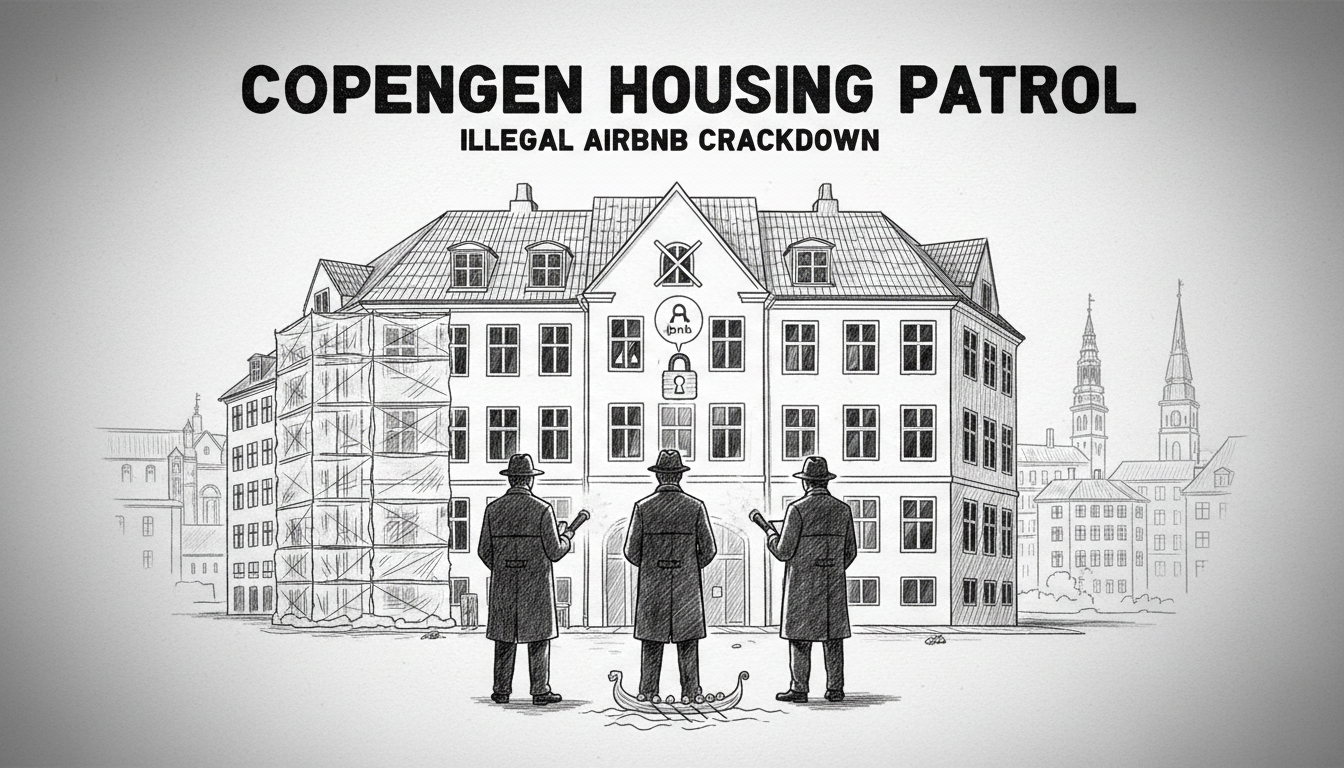Copenhagen is cracking down on illegal short-term rentals with a new housing patrol initiative. The city wants to ensure residential apartments remain available for local residents rather than becoming de facto hotel rooms for tourists.
Line Barfod, the Red-Green Alliance's candidate for lord mayor, leads this effort. She aims to protect housing stock for Copenhageners who struggle to find affordable homes. The initiative responds to growing concerns about residential units being converted into tourist accommodations.
Walk through Copenhagen's Latin Quarter and you will see evidence of the problem. Multiple key boxes hang near building entrances. These indicate apartments regularly host short-term visitors rather than permanent residents.
Current regulations limit short-term rentals to 70 days per year. Property owners face no requirement to report their rental activity. Municipal authorities lack the tools to monitor compliance effectively. This creates enforcement challenges for city officials.
The new housing patrol will physically inspect properties suspected of violating rental rules. Officials will document evidence of illegal tourist accommodations. They will verify whether apartments serve as primary residences or function as commercial rental properties.
Copenhagen's housing market faces intense pressure from tourism and investment buyers. The city welcomed over 10 million overnight visitors last year. Many seek authentic local experiences through home-sharing platforms.
Short-term rentals can provide extra income for homeowners. They also reduce available housing for permanent residents. Young people and students particularly struggle to find affordable apartments in central neighborhoods.
Similar housing patrol initiatives exist in other European cities. Barcelona and Amsterdam implemented comparable enforcement measures. They aim to balance tourism benefits with residents' housing needs.
The political debate around short-term rentals involves multiple perspectives. Some argue property owners should have rental freedom. Others prioritize maintaining residential communities over tourist accommodation.
Copenhagen's approach reflects broader Nordic housing values. The region traditionally emphasizes housing as a right rather than pure investment. This cultural context explains why cities intervene in rental markets.
What practical impact will the housing patrol have? Enforcement teams need clear legal authority to inspect properties. They must distinguish between occasional home-sharing and commercial rental operations.
The initiative represents one piece of Copenhagen's broader housing strategy. The city continues developing policies to address affordability challenges. Balancing local needs with tourism growth remains an ongoing challenge for urban planners.
International observers watch Copenhagen's approach closely. Other cities facing similar rental market pressures may adopt comparable measures. The effectiveness of physical inspections versus digital monitoring remains unclear.
Copenhagen residents will likely welcome the enforcement effort. Those struggling to find housing hope it increases available apartments. The success depends on consistent implementation and adequate resources for enforcement teams.

